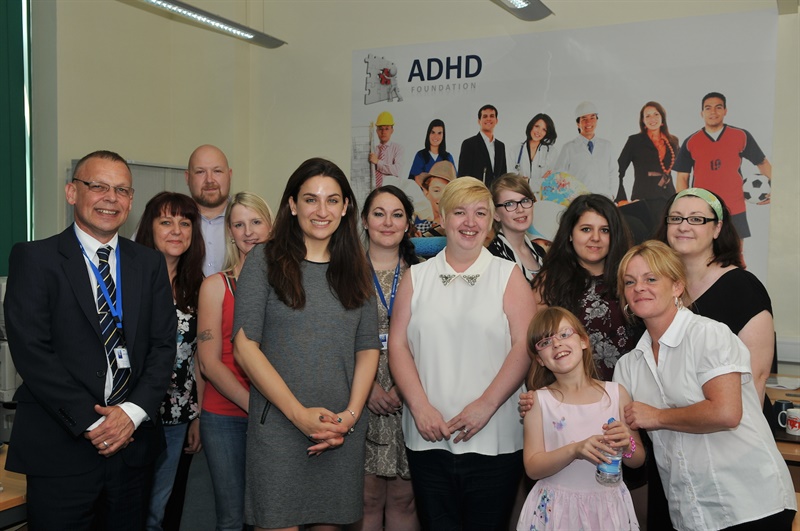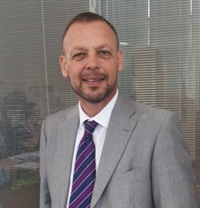07.10.14
Prescribing of ADHD medications has doubled in six years
Dr Tony Lloyd, CEO of The ADHD Foundation, argues that many GPs are inadequately trained to identify neurodisabilities in children.
ADHD is a lightning rod for overstretched paediatric and child and adolescent mental health services.
The NHS and the Department for Education need to address the impact ADHD has on the lives of families, and recognise the distress caused by the condition. Both bodies also need to realise how ADHD can impact on the long-term mental health of those affected if they are left unsupported, and the cost of their unnecessary life-long dependence on health services.
NICE estimates that 5% of schoolchildren in the UK (more than 500,000 ) live with this condition. Evidence obtained through the Freedom of Information Act suggests that post-diagnostic support is non-existent in some parts of the UK. This means there are many children who remain unsupported and at greater risk of a lifetime of disadvantage and alarming health and socio-economic outcomes.
New diagnostic tools such as QB testing have improved diagnostic accuracy to 80%. However, the public debate continues, with media moralising about bad parenting and claims that ADHD is being over-diagnosed – yet there is no evidence to substantiate this.
ADHD is 70% heritable and, like ASD, is a spectrum disorder. Symptoms include hyperactivity, inattention and impulsivity, resulting in frustration, anxiety, intolerance and sometimes aggressive ‘fight or flight’ behaviours, which are the result of an inability to self-regulate emotion. ADHD is a life-long condition, though severity often decreases once the brain reaches full maturity. It is estimated that over 70% of those with ADHD have additional neurodisabilities such as dyslexia, dyscalculia, sensory processing disorder, tics or autism.
It is little wonder these children struggle at school. However, teachers and indeed many GPs are inadequately trained to identify neurodisabilities in children, and waiting lists for paediatric assessments can be anything up to two years, resulting in further distress for children affected.
We know also that pervasive levels of anxiety in children influence how the brain develops, both structurally and functionally, with serious consequences for long-term mental health. The impact of ADHD on life chance trajectories can result in school failure, loss of status and rejection by peers, sustained levels of anxiety, depression, psychosis, self-harm, increased risk of addiction through self-medication and long-term unemployment – all of which come at a cost to the state. Permanent exclusion of a child from school because of ADHD is estimated to cost the state £65,000 per child.
Early diagnosis and intervention can reduce the risks associated with ADHD. Yet the imperative for a diagnosis usually comes from the school based on the child’s behaviour – not because they have identified a cognitive impairment resulting in a learning difficulty. ADHD is not an excuse for poor behaviour or underachievement – we do children no favours by saying it is. However, it does explain why some children need more support to manage their health and achieve their potential.
Prescribing of ADHD medications has doubled in the UK in the past six years. Pharmaceutical companies state quite clearly that medication should not be used in isolation, yet many NHS trusts are still failing to implement NICE guidelines, offering medication as the first, and often the only, line of treatment. Although medication can be very effective, it doesn’t teach young people about how to self-regulate and become emotionally resilient, with a strength-based approach to their mental health so they can learn how to live successfully with this condition. This means that they run a far greater risk of developing associated mental health problems and are much less likely to achieve their potential at school and go on to gain meaningful employment. This is particularly concerning when only 20% of children are still compliant with medication by the age of 15.
The ADHD Foundation is the largest patient-led service in the UK and one of only three agencies in the UK that offer the NICE-recommended multimodal service. We have seen referrals from paediatricians double in the past two years. We are especially concerned with the number of children who are also suffering with anxiety and depression. Furthermore, one piece of recent research suggests that nearly one in five of those with ADHD will attempt suicide at some point in their life (Lahey 2010).

Above: Luciana Berger MP, shadow public health minister, with staff and service users from The ADHD Foundation at its Liverpool offices.
There have been several recent announcements by ministers calling for parity of esteem for mental health services. In the case of ADHD, the Ggvernment needs to fund research in psycho- social interventions such as CBT for ADHD and empower families with the knowledge and skills to take responsibility for their health outcomes. The cost of one year of such interventions at The ADHD Foundation is the equivalent to that of one year of medication: £700. While there will always be some for whom medication is necessary, there is a good case for an ‘invest to save approach in meeting the needs of those with ADHD’.
Our annual conference is taking place next week in Liverpool on 13 and 14 October. At this event, 24 speakers will examine the escalating need for mental health support for children and young people and address the growing concern about support when they transition into adult services at 16.
For more information visit: www.adhdfoundation.org.uk

Dr Tony Lloyd, CEO of The ADHD Foundation